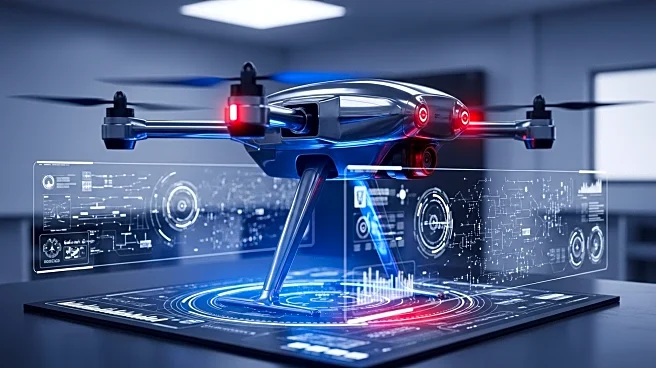What's Happening?
The Trump administration is advocating for the aggressive adoption of artificial intelligence (AI) in military operations, recognizing the need for specific guardrails to ensure its safe and effective use. The administration has moved AI responsibilities under the research and development umbrella to facilitate rapid deployment while maintaining operational integrity. Concerns have been raised about the potential misuse of AI by external malicious actors and the risk of insider threats. The administration emphasizes the importance of developing protections to prevent both external and internal misuse of AI systems. This includes addressing technical vulnerabilities and guiding human interactions with AI to prevent harmful outcomes.
Why It's Important?
The integration of AI into military operations has significant implications for national security and defense strategies. Properly implemented guardrails can prevent the misuse of AI, which could otherwise lead to severe consequences, including unauthorized access to sensitive information or the manipulation of military systems. The focus on AI safety and effectiveness is crucial to maintaining the integrity of military operations and protecting against both external cyber threats and internal risks. The development of these guardrails will help ensure that AI enhances military capabilities without compromising security or ethical standards.
What's Next?
The Department of Defense is expected to collaborate with AI companies to develop models that can detect and mitigate threats in real-time. This includes identifying malicious queries and patterns that suggest psychological manipulation or insider risk. The administration's decision to place AI under the research and engineering sectors aims to balance rapid deployment with safety and transparency. Ongoing discussions will likely focus on defining responsible AI use in military contexts and establishing policies that align with military values and objectives.
Beyond the Headlines
The ethical and legal implications of AI in military use are significant. Ensuring that AI systems are used responsibly requires careful consideration of both technical and human factors. The potential for AI to influence decision-making processes and the risk of psychological manipulation highlight the need for comprehensive guidelines and oversight. The development of AI guardrails will play a critical role in shaping the future of military operations and ensuring that technological advancements align with ethical standards and national security interests.










